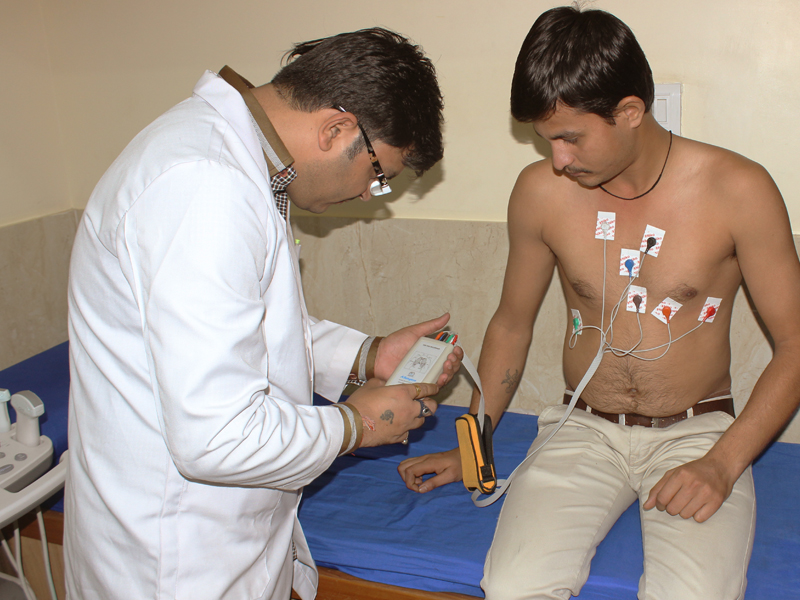HOLTER MONITORING

Holter Monitoring is also commonly known as Ambulatory electrocardiography. Holter monitor is a tiny, portable, battery-driven medical appliance that evaluates the heart functioning such as the rhythm of heart and rate of heart beating. This testing is commonly ordered when your doctor requires better information about the working of your heart, rather than just a regular electrocardiogram. In a literal sense, Holter monitoring (24 hours) denotes to a ceaseless 24 hour, examination to trace the rhythm of your heart along with Heart rate. This appliance also has electrodes as well as electrical wires (leads) just like a regular electrocardiogram. During Holter monitoring, the patient has to wear a Holter monitor for the period of 12 to 48 hours, as they go about conduct their normal daily functions. In a literal sense, Holter monitoring is conducted to help your medical doctor in analyzing whether your heart is getting sufficient amount of oxygen, or whether your electrical signals of the heart are delayed due to some specific cause.
We At Shri Bhagwan Diagnostic & Imaging Centre Pvt. Ltd, not only utilize state-of-the-art appliances for matchless results, but also proffer our dedicated personnel for the ideal execution of the whole examination with the utmost care of the patients. Here we are proffering the inclusive guide of HOLTER MONITORING, including the reasons, process, and everything related with it.
REASONS WHY YOUR DOCTOR SUGGESTS YOU HOLTER MONITORING
An electrocardiogram is a medical examination that classically advised to determine the heart rate and rhythm, and to look for different anomalies that may affect the functioning of a normal heart. A patient may have some heart rhythm abnormalities, which don't appear at the time of completion of electrocardiogram. And when such cases arise, in which an irregular heartbeat is supposed, your doctor may advise you to conduct a Holter monitoring examination.
This whole test facilitates the doctor in reviewing how your heart, work for a longer period. The tracings created by the Holter monitor assist your medical consultant or doctor to evaluate, if your precious heart is getting sufficient oxygen or if the electrical impulses of the heart are belated due to some reason.
PROCESS OF CONDUCTING HOLTER MONITORING
Basically, Holter monitoring is a small, appliance combined with different leads, and wires. The leads of the monitor connect to electrodes that are ideally positioned on the chest of your body with a glue-kind of gel. These metal electrodes execute and transfer your heart functioning through the leads to the Holter monitor appliance.
There is a small pouch to hold the monitor on its own, which you carry in your neck. Doctor or technician advises to keep the monitor near to your body throughout the whole examination time, to ensure the tracings are up to the mark. Your doctor will exemplify you the manner of re-attaching the electrodes, if they in any case turn loose of fall in the entire testing period.
All wise medical consultants recommend the patients to actively indulge themselves in the regular tasks in the Holter monitoring 24 hour test. Being a patient, you will be strongly told to record your actions of the entire day in a pad. This facilitates your physician to decide if alterations in heart functions are pertaining to your actions and performance. Although, always record instantly if you face any chest pain, fast heartbeat or other cardiac symptoms, during the complete examination period.




